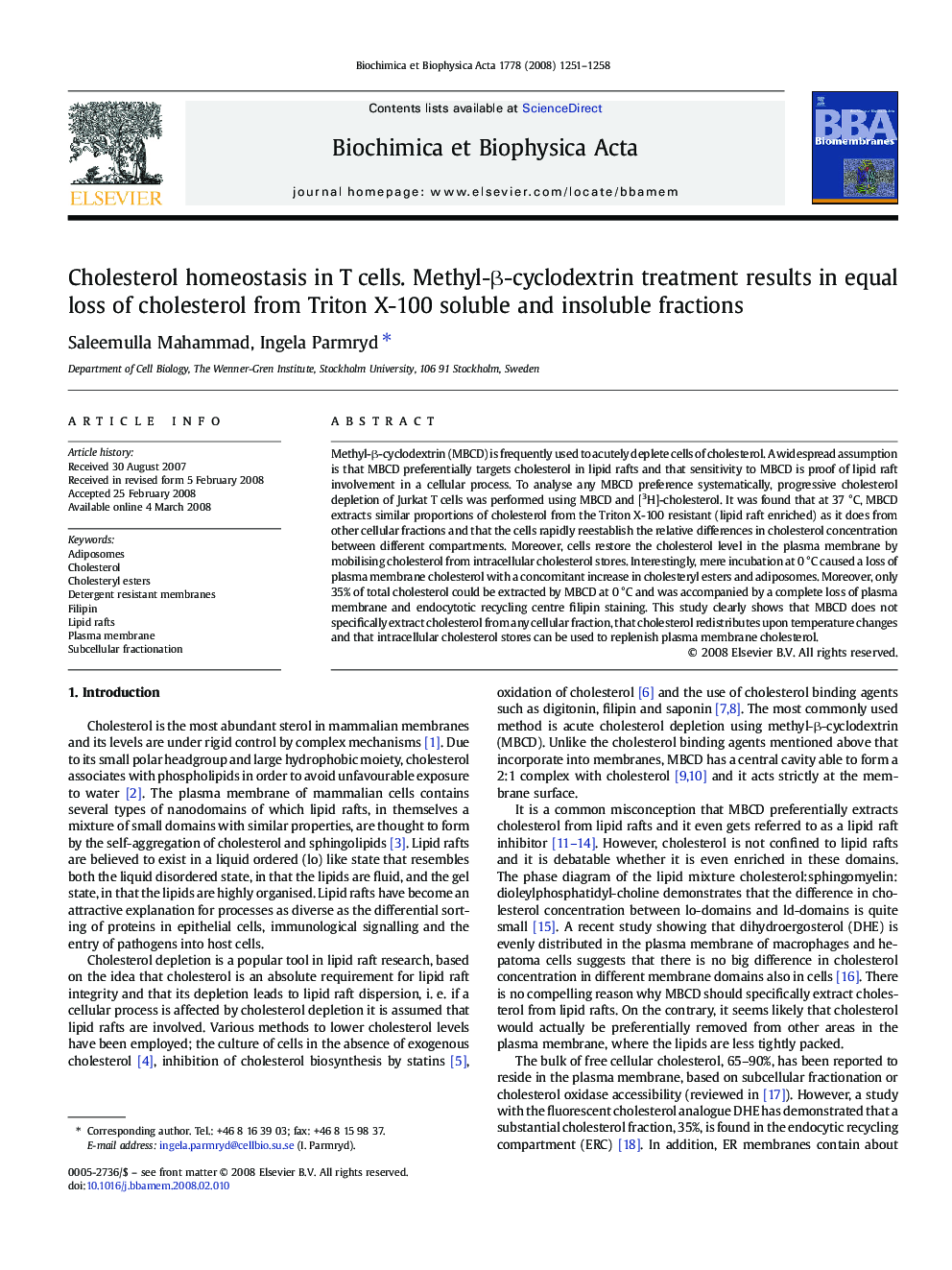| Article ID | Journal | Published Year | Pages | File Type |
|---|---|---|---|---|
| 1945416 | Biochimica et Biophysica Acta (BBA) - Biomembranes | 2008 | 8 Pages |
Methyl-β-cyclodextrin (MBCD) is frequently used to acutely deplete cells of cholesterol. A widespread assumption is that MBCD preferentially targets cholesterol in lipid rafts and that sensitivity to MBCD is proof of lipid raft involvement in a cellular process. To analyse any MBCD preference systematically, progressive cholesterol depletion of Jurkat T cells was performed using MBCD and [3H]-cholesterol. It was found that at 37 °C, MBCD extracts similar proportions of cholesterol from the Triton X-100 resistant (lipid raft enriched) as it does from other cellular fractions and that the cells rapidly reestablish the relative differences in cholesterol concentration between different compartments. Moreover, cells restore the cholesterol level in the plasma membrane by mobilising cholesterol from intracellular cholesterol stores. Interestingly, mere incubation at 0 °C caused a loss of plasma membrane cholesterol with a concomitant increase in cholesteryl esters and adiposomes. Moreover, only 35% of total cholesterol could be extracted by MBCD at 0 °C and was accompanied by a complete loss of plasma membrane and endocytotic recycling centre filipin staining. This study clearly shows that MBCD does not specifically extract cholesterol from any cellular fraction, that cholesterol redistributes upon temperature changes and that intracellular cholesterol stores can be used to replenish plasma membrane cholesterol.
